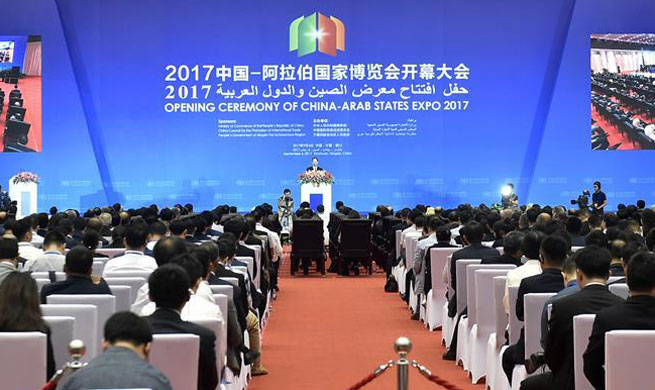UNITED NATIONS, Sept. 6 (Xinhua) -- The United Nations Children's Fund (UNICEF) said Wednesday that conflict and widespread poverty have stalled progress on education rates over the past decade around the world.
"Pervasive levels of poverty, protracted conflicts and complex humanitarian emergencies have led to stagnation in reducing the global out-of-school rate over the past decade," UNICEF said in a press release.
With 11.5 percent of school-age children, or 123 million missing school today, compared to 12.8 percent, or 135 million in 2007, the percentage of out-of-school children has barely decreased in the last decade, according to UNICEF.
"Investments aimed at increasing the number of schools and teachers to match population growth are not enough," said UNICEF Chief of Education Jo Bourne.
Children living in the world's poorest countries and in conflict zones are disproportionally affected. Of the 123 million children missing out on school, 40 percent live in the least developed countries and 20 percent live in conflict zones, said UNICEF.
The conflicts in Iraq and Syria have resulted in an additional 3.4 million children missing out on education, bringing the number of out-of-school children across the Middle East and North Africa back to 2007's level of approximately 16 million.
With their high levels of poverty, rapidly increasing populations and recurring emergencies, Sub-Saharan Africa and South Asia account for 75 percent of the global out-of-school primary- and lower-secondary school age population.
"Governments and the global community must target their investments at eliminating the factors preventing these children from going to school in the first place, including by making schools safe and improving teaching and learning," said Bourne.
However, some progress has been achieved, she said.
Ethiopia and Niger, among the world's poorest countries, have made the most enrolment rate progress in primary-school-age children with an increase of more than 15 percent and around 19 percent, respectively.
On the other hand, emergency funding shortfalls for education affect access for children in conflict to attend school, she said.
Six-months into 2017, UNICEF had only received 12 percent of the funding required to provide education for children caught up in crises. More funds are urgently required to address the increasing number and complexity of crises and to give children the stability and opportunities they deserve.














